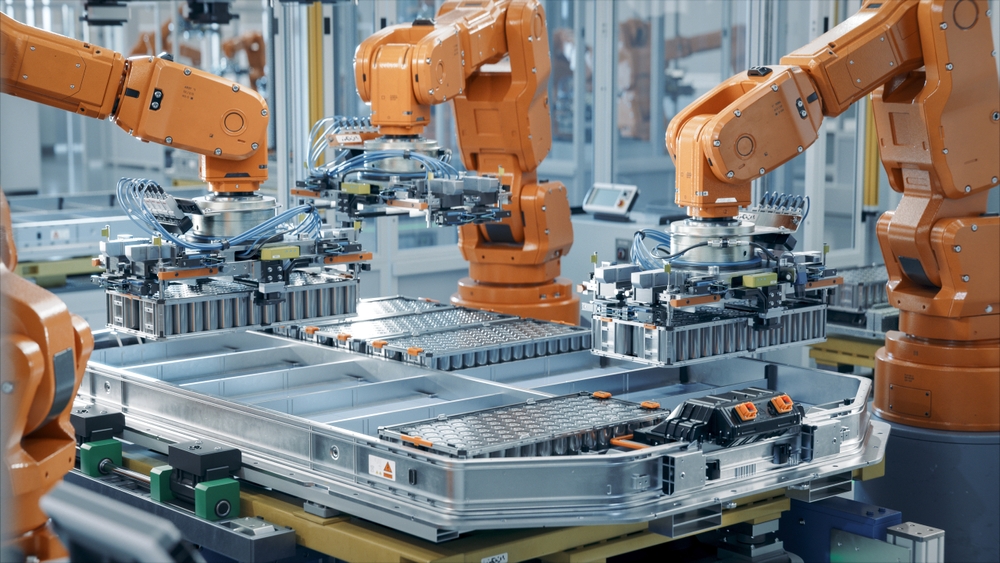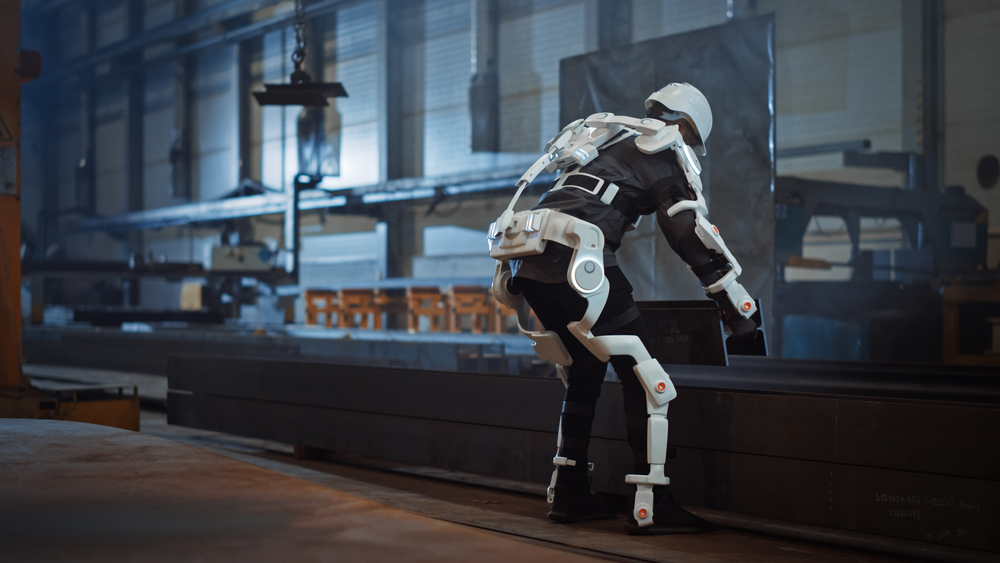Technology, automation, and changing social behavior are reshaping the global workforce. New tools and platforms are streamlining tasks once done by people. While some careers will grow, others are shrinking fast. Many industries will see massive job losses as digital systems take over routine or predictable tasks. Jobs tied to manual input, repetitive service, and outdated systems are most at risk. If you are preparing for the future of work, it is important to understand which jobs are likely to vanish by 2035. This list highlights 15 types of employment that are on their way out. Each of these jobs is affected by automation, consumer trends, or structural change. This guide can help identify where not to invest your long-term energy.
Toll Booth Operators Are Being Replaced by Digital Systems

Toll collection is becoming fully automated in many regions. Highways are switching to license plate recognition and prepaid electronic systems. These systems bill users directly, removing the need for stopping or human interaction. Cashless tolling improves traffic flow and reduces the cost of staffing booths. With entire states removing toll booths entirely, operators are no longer needed. This trend will only speed up as governments invest in smart infrastructure. Over the next ten years, toll booth jobs will likely disappear everywhere except for a few legacy systems.
Travel Agents Are Losing to Self-Booking Platforms

Online travel booking has made personal agents mostly unnecessary. Websites and apps allow travelers to compare flights, hotels, and packages with a few taps. Consumers prefer the control and instant confirmation offered by digital tools. These platforms often offer better pricing with fewer fees. Traditional travel agents, once the norm, are now used only for luxury or corporate arrangements. Most standard vacation planning no longer needs human input. Within the decade, jobs in this field will be extremely rare, especially as AI tools gain travel planning features.
Newspaper Delivery Jobs Are Becoming Obsolete

Digital subscriptions have replaced printed newspapers for most readers. As printing costs rise and advertising shifts to online platforms, news outlets are scaling back or eliminating print editions. Many cities have already ended home delivery entirely. Paper carriers, once a common sight in neighborhoods, are vanishing quickly. Apps, notifications, and mobile websites deliver news faster and at lower cost. Within ten years, newspaper delivery jobs will likely disappear except in niche rural or hobbyist markets.
Data Entry Clerks Will Be Replaced by Automation

Data entry involves repetitive typing of information into digital systems. This job is perfect for automation. Scanning software, natural language processing, and AI can process and organize data more accurately than a person. Many companies have already integrated these tools into daily operations. Basic data entry roles, especially in finance and logistics, are being cut rapidly. As these tools become cheaper and more accurate, companies will phase out clerks. Only data specialists with additional analysis or verification skills will remain employed in this category by 2035.
Telemarketers Are Being Replaced by AI and Text Bots

Telemarketing is losing effectiveness as consumers block numbers and ignore unknown calls. At the same time, businesses are switching to chatbots, automated messages, and targeted social media ads. AI-powered systems can handle thousands of interactions per hour without requiring wages or breaks. Laws and regulations are also making phone-based selling more difficult. The cost-benefit ratio no longer supports human telemarketers. Within a decade, these jobs will be largely gone, replaced by smarter, faster, and more legally compliant marketing tools.
Bank Tellers Are Being Replaced by Smart Machines

The banking sector is rapidly digitizing. Consumers are using mobile apps, ATMs, and online portals for nearly all transactions. Routine banking tasks like deposits, transfers, and payments no longer require face-to-face interaction. Branch locations are being reduced or closed altogether. Interactive kiosks can now handle more complex requests, including document scanning and loan applications. As banking moves into the digital space, the number of teller jobs continues to shrink. In ten years, most people will handle all their finances without ever meeting a teller in person.
Parking Attendants Are Being Replaced by Smart Infrastructure

Parking management is evolving fast. Cities and private garages are installing license plate readers, app-based access, and automatic gate systems. These systems track when a vehicle enters and exits, calculate fees, and process payment without needing an employee. Some systems even direct drivers to available spaces using sensors. As more cities implement smart parking, the demand for attendants drops. Even valet services are testing robotic parking tools. Parking-related jobs are becoming redundant, with most being eliminated before 2035.
Cashiers Are Being Replaced by Self-Checkout and Scan-and-Go Tech

Retail stores are investing heavily in automation. Self-checkout stations are now standard in most supermarkets and big-box retailers. Some locations offer scan-and-go apps that let shoppers scan items and pay without interacting with a cashier. Stores also benefit from reduced shrinkage and increased speed. Tech companies are developing full-automation retail experiences where the entire process is tracked digitally. These models are being adopted faster than expected. Jobs for cashiers will become scarce as stores optimize for efficiency and lower staffing costs.
Video Store Clerks Have Already Mostly Disappeared

Streaming platforms have completely changed how people consume media. Physical media rental stores have nearly all closed, with few exceptions catering to collectors. Consumers now have access to thousands of titles on-demand from their own devices. With little reason to browse physical shelves, video rental clerks are no longer needed. The remaining small-format rental stores will likely shut down or convert to specialty shops. By 2035, the idea of renting a disc will seem as outdated as using a rotary phone.
Meter Readers Are Being Replaced by Smart Sensors

Utility companies are embracing smart metering. These devices automatically transmit data on electricity, water, and gas usage without the need for a human visit. Smart meters reduce billing errors and allow for real-time monitoring of consumption. Cities are rolling them out in phases, but the trend is accelerating. As adoption spreads, manual meter reading becomes unnecessary. The jobs tied to this task will no longer exist, replaced by a system that operates 24/7 with near-zero maintenance labor.
Typists and Word Processors Are Rare and Becoming Irrelevant

The job of professional typist or word processor is already outdated in most settings. Modern office software, voice recognition, and the widespread ability to type make this job unnecessary. Businesses now expect staff to handle their own documents. Voice dictation tools continue to improve and require little training. As a result, dedicated typing jobs are being phased out in nearly all industries. Over the next ten years, these roles will be absorbed into general administrative duties or vanish entirely.
Factory Assembly Line Workers Face Automation Risks

Manufacturing continues to automate repetitive tasks. Robots can assemble, weld, paint, and package goods at a much faster rate than humans. They do not need rest and can operate with extreme precision. As labor costs rise and quality standards tighten, factories are replacing workers with machines. Some workers may retrain to manage or program machines, but most simple assembly jobs will disappear. The rise of lights-out manufacturing, where entire factories run without people, makes this shift permanent.
Librarians in Public Schools Are Being Cut from Budgets

Budget pressures and digital learning tools are pushing schools to reduce traditional roles. School librarians, once key to managing media resources, are being replaced by digital libraries and classroom-based systems. With e-books, online encyclopedias, and search engines readily available, school boards are cutting costs by eliminating librarian positions. Some schools are sharing librarians across districts or merging their duties with tech staff. If funding trends continue, these jobs may no longer exist in most school systems by 2035.
Assembly-Based Fast Food Workers Face Robotic Competition

Automation is coming to the kitchen. Fast food chains are using robots to prepare burgers, fry sides, and portion sauces. Some test kitchens are fully robotic and require minimal human staff. Customers order through apps or kiosks, eliminating the need for cashiers and order takers. These systems improve consistency and reduce mistakes. Entry-level food prep jobs are at risk. As technology becomes cheaper and more reliable, these jobs will decline across major chains within the next ten years.
Ticket Agents at Transit Stations Are Being Replaced by Mobile Apps

Public transit is shifting to digital access. Mobile apps now let users plan routes, purchase tickets, and check schedules in real time. Tap-and-go systems have replaced paper tickets. Vending machines issue passes without the need for an agent. Live support is increasingly provided online or by phone. As transit networks modernize, physical ticket counters are closing. Ticket agent jobs are steadily declining and will likely be eliminated in most cities before 2035.
The Job Market Will Favor Adaptability and Technical Skills

The common factor in all these job losses is automation and digitization. Many of these roles involve predictable tasks that machines can handle faster and cheaper. The rise of software and robotics is transforming how companies operate. Jobs that rely on manual repetition or simple interactions are no longer safe. For workers, this shift highlights the need to adapt, reskill, or move into sectors where creativity, analysis, and personal interaction still matter. The most secure jobs in the future will involve complex thinking, decision-making, or technical expertise. While these 15 jobs are disappearing, new ones will take their place, and those ready to change will have the advantage.
Read More: Why More Americans Are Quitting 9-to-5 Jobs for Invisible Careers Online
Disclaimer: This article was created with AI assistance and edited by a human for accuracy and clarity.
